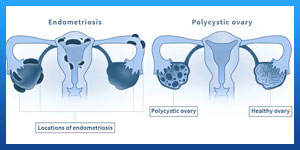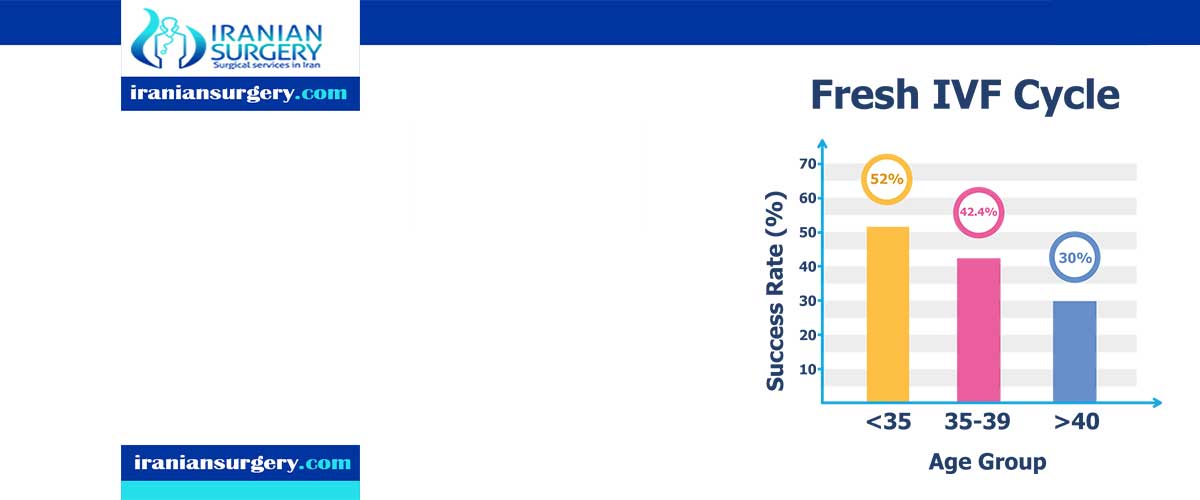What are the chances of getting pregnant with IVF at 35?
IVF success rates by age
What is the best age for IVF?
What is the success rate of IVF on the first try?
In fact, the live birth IVF success rate for women under 35 who start an IVF cycle is 40 percent. However, women over age 42 have a 4 percent success rate. More IVF success factors to think about include whether or not you were pregnant previously and if it was with the same partner. Overall, for women starting IVF, 33% have a baby as a result of their first cycle, increasing to 54-77% by the eighth cycle.
Contact us for more information on IVF success rates in Iran
You can contact us for more information on what to do after Failed IVF in Iran.
Read more about: What is the success rate of ICSI IVF?
Read more about : Do ivf babies look like mom or dad?
 How to increase your chances of IVF success
How to increase your chances of IVF success
- Maintain a healthy weight.
- Optimize sperm health.
- Partner with an excellent doctor and embryology laboratory.
- Reduce your stress.
- Quit smoking.
- Look into taking supplements.
- Ensure you have adequate levels of vitamin D.

Read more about: What is the lowest sperm count for IVF
IVF success rates by age
37% of women under age 35 had successful IVF implantation. The number decreased to 31% for women aged 35-37. Further, only 21% of women from the age of 38-40 could carry out artificial pregnancy. The number dropped to 11% among women aged 41-42, and it only remained to 4% for women over the age of 42%.
What is the best age for IVF?
IVF should be offered to women under the age of 43 who have been trying to get pregnant through regular unprotected sex for 2 years, or who have had 12 cycles of artificial insemination. The age is the most significant factor that comes to play for women who wish to conceive through IVF. The upper limit for a successful IVF implant in terms of age is 42-45 years. Once you cross the age of 43, patients are advised to seek eggs from the younger women.
Read more about: when is assisted hatching done in IVF
What is the success rate of IVF?
What are the chances of getting pregnant with IVF?
The most important fact to know about IVF is it's not 100 percent successful. Success rates for IVF depend on a number of factors, including the reason for infertility, where you're having the procedure done, and your age. The CDC compiles national statistics for all assisted reproductive technology (ART) procedures performed in the U.S., including IVF, GIFT, and ZIFT, although IVF is by far the most common; it accounts for 99% of the procedures.
- Pregnancy was achieved in an average of 27.3% of all cycles (higher or lower depending on the age of the woman).
- The percentage of cycles that resulted in live births was 22.2% on average (higher or lower depending on the age of the woman).
Read more about: IUI vs IVF success rates over 40
What is the success rate of IVF on the first try?
Women who started IVF before they turned 35 had the highest success rates. For example, women under 30 had a 44% chance of a live birth in their first cycle, and a cumulative live-birth rate of between 69% (conservative) and 91% (optimal) after six cycles; women aged 30-34 had only marginally lower rates than these. If there is an embryo transfer involved, the IVF could have failed because of an embryo implantation failure. This could actually either be due to an issue with the embryos or with the uterus. However, it is believed by many fertility specialists that it is most often due to an arrest of the embyros.
Read more about: iui vs ivf
What are IVF risks and complications?
Many women will have some reaction to the medications used during IVF. Most of the time, the side effects are mild.
They may include:
- hot flushes
- feeling down or irritable
- headaches
- restlessness
- ovarian hyperstimulation syndrome
Read more about: IVF with frozen donor eggs process


